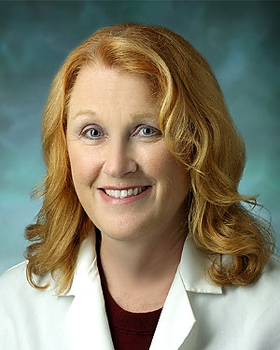Neonatal Abstinence Syndrome Overview
Learn About Neonatal Abstinence Syndrome
Neonatal abstinence syndrome (NAS) is a group of problems that can happen when a baby is exposed to opioid drugs or medicine for a length of time while in their mother's womb (uterus).
NAS; Neonatal abstinence symptoms; NOWS; Neonatal opioid withdrawal syndrome
NAS may occur when a pregnant woman takes drugs such as heroin, or medicines such as codeine, oxycodone (Oxycontin), methadone, or buprenorphine.
These and other substances pass through the placenta that connects the baby to its mother in the womb. The baby becomes dependent on the drug along with the mother.
If the mother continues to use the drugs within the week or so before delivery, the baby will be dependent on the drug at birth. Because the baby is no longer getting the drug after birth, withdrawal symptoms may occur as the drug is slowly cleared from the baby's system.
Withdrawal symptoms also may occur in babies exposed to alcohol, benzodiazepines, barbiturates, and certain antidepressants (SSRIs) while in the womb.
Babies of mothers who use opioids and other addictive drugs (nicotine, amphetamines, cocaine, marijuana, alcohol) may have long-term problems. While there is no clear evidence of a NAS for other drugs, they may contribute to the severity of a baby's NAS symptoms.
The symptoms of NAS depend on:
- The type of drug the mother used
- How the body breaks down and clears the drug (influenced by genetic factors)
- How much of the drug she was taking
- How long she used the drug
- Whether the baby was born full-term or early (premature)
Symptoms often begin within 1 to 3 days after birth, but may take up to a week to appear. Because of this, the baby will most often need to stay in the hospital for observation and monitoring for up to a week.
Symptoms may include:
- Blotchy skin coloring (mottling)
- Diarrhea
- Excessive crying or high-pitched crying
- Excessive sucking
- Fever
- Hyperactive reflexes
- Increased muscle tone
- Irritability
- Poor feeding
- Rapid breathing
- Seizures
- Sleep problems
- Slow weight gain
- Stuffy nose, sneezing
- Sweating
- Trembling (tremors)
- Vomiting
Treatment depends on:
- The drug involved
- The infant's overall health and abstinence scores
- Whether the baby was born full-term or premature
The health care team will watch the newborn carefully for up to a week (or longer, depending on how the baby is doing) after birth for signs of withdrawal, feeding problems, and weight gain. Babies who vomit or who are very dehydrated may need to get fluids through a vein (IV).
Infants with NAS are often fussy and hard to calm. Tips to calm them include measures often referred to as "TLC" (tender loving care):
- Gently rocking the child
- Reducing noise and lights
- Skin to skin care with mom, or swaddling the baby in a blanket
- Breastfeeding (if the mother is in a methadone or buprenorphine treatment program without other illicit drug use)
Some babies with severe symptoms need medicines such as methadone or morphine to treat withdrawal symptoms and help them be able to eat, sleep and relax. These babies may need to stay in the hospital for weeks or months after birth. The goal of treatment is to prescribe the infant a drug similar to the one the mother used during pregnancy and slowly decrease the dose over time. This helps wean the baby off the drug and relieves some withdrawal symptoms.
If the symptoms are severe, such as if other drugs were used, a second medicine such as phenobarbital or clonidine may be added.
Babies with this condition often have severe diaper rash or other areas of skin breakdown. This requires treatment with special ointment or cream.
Babies may also have problems with feeding or slow growth. These babies may require:
- Higher-calorie feedings that provide greater nutrition
- Smaller feedings given more often
. Dr. Shah is rated as an Elite provider by MediFind in the treatment of Neonatal Abstinence Syndrome. His top areas of expertise are Neonatal Abstinence Syndrome, Congenital Unilateral Pulmonary Hypoplasia, Patent Ductus Arteriosus, and Omphalocele.
Jefferson Vascular Center - Honickman Center
Walter Kraft is a primary care provider, a General Surgeon and a Pharmacologist in Philadelphia, Pennsylvania. Dr. Kraft is rated as an Elite provider by MediFind in the treatment of Neonatal Abstinence Syndrome. His top areas of expertise are Neonatal Abstinence Syndrome, Opioid Use Disorder, Pulmonary Embolism, Congenital Antithrombin 3 Deficiency, and Pancreaticoduodenectomy.
BMS At Yard 56
Dr. Lauren Melissa Jansson is an associate professor of pediatrics at the Johns Hopkins University School of Medicine. Her areas of clinical expertise include drug abuse research, drug-exposed infants and children, and pediatrics. Dr. Jansson earned her M.D. from the State University of New York at Downstate Medical Center. She completed her residency at the Children’s Hospital at Albany Medical Center and performed a fellowship in developmental pediatrics at the Albert Einstein College of Medicine. Her research interests include fetal neurobehavioral development in drug-exposed pregnancies, lactation in opioid-dependent women on medication assisted treatment, and neonatal abstinence syndrome resulting from in utero opiate and other substance exposures. Dr. Jansson is a member of several professional organizations, including the College on Problems of Drug Dependence, the Academic Pediatric Association, and the Society for Pediatric Research. Dr. Jansson is rated as an Elite provider by MediFind in the treatment of Neonatal Abstinence Syndrome. Her top area of expertise is Neonatal Abstinence Syndrome.
Treatment helps relieve symptoms of withdrawal. Even after treatment for NAS is over and babies leave the hospital, they may need extra "TLC" for weeks or months.
Drug and alcohol use during pregnancy can lead to many health problems in the baby besides NAS. These may include:
- Birth defects
- Low birth weight
- Premature birth
- Small head circumference
- Sudden infant death syndrome (SIDS)
- Problems with development and behavior
NAS treatment can last from 1 week to 6 months.
Make sure your provider knows about all the medicines, supplements, and drugs you take during pregnancy.
Contact your provider if your baby has symptoms of NAS.
Discuss all medicines, supplements, drugs, alcohol and tobacco use with your provider.
Ask your provider for help as soon as possible if you are:
- Using drugs non-medically
- Using drugs not prescribed to you
- Using alcohol or tobacco
If you are already pregnant and take medicines, supplements, or drugs not prescribed to you, talk to your provider about the best way to keep you and the baby safe. Some medicines should not be stopped without medical supervision, or complications may develop. Your provider will know how best to manage the risks.
Summary: Neonatal Abstinence Syndrome (NAS), is a common and costly problem in Alberta that affects approximately 250 babies per year exposed to drugs during pregnancy. Unfortunately, this has become more common in the last 10 years. Babies with NAS can be very difficult to care for with poor feeding, diarrhea, and extreme irritability. These babies often receive specialized care and medications in the Neo...
Summary: The purpose of this study is to address the gap in maternal OUD treatment and infant neonatal opioid withdrawal syndrome care. The research team will develop a treatment model and a set of strategies to provide evidence-based OUD treatment to postpartum mothers in NICUs. First, the investigators will conduct a needs assessment via in-depth qualitative interviews with NICU mothers and clinicians. T...
Published Date: December 31, 2023
Published By: Mary J. Terrell, MD, IBCLC, Neonatologist, Cape Fear Valley Medical Center, Fayetteville, NC. Review provided by VeriMed Healthcare Network. Also reviewed by David C. Dugdale, MD, Medical Director, Brenda Conaway, Editorial Director, and the A.D.A.M. Editorial team.
Hudak ML. Infants of substance-using mothers. In: Martin RJ, Fanaroff AA, eds. Fanaroff and Martin's Neonatal-Perinatal Medicine. 12th ed. Philadelphia, PA: Elsevier; 2025:chap 48.
Jilani SM, Jones HE, Grossman M, et al. Standardizing the Clinical Definition of Opioid Withdrawal in the Neonate. J Pediatr. 2022;243:33-39. PMID: 34942181 pubmed.ncbi.nlm.nih.gov/34942181/.
Kliegman RM, St. Geme JW, Blum NJ, Shah SS, Tasker RC, Wilson KM. Abstinence syndromes. In Kliegman RM, St. Geme JW, Blum NJ, Shah SS, Tasker RC, Wilson KM, eds. Nelson Textbook of Pediatrics. 21st ed. Philadelphia, PA: Elsevier; 2020:chap 126.
Velez ML, Jordan C, Jansson LM. Reconceptualizing non-pharmacologic approaches to Neonatal Abstinence Syndrome (NAS) and Neonatal Opioid Withdrawal Syndrome (NOWS): a theoretical and evidence-based approach—Part II: The clinical application of nonpharmacologic care for NAS/NOWS. Neurotoxicol Teratol. 2021;88:107032. PMID: 34600100 pubmed.ncbi.nlm.nih.gov/34600100/.


